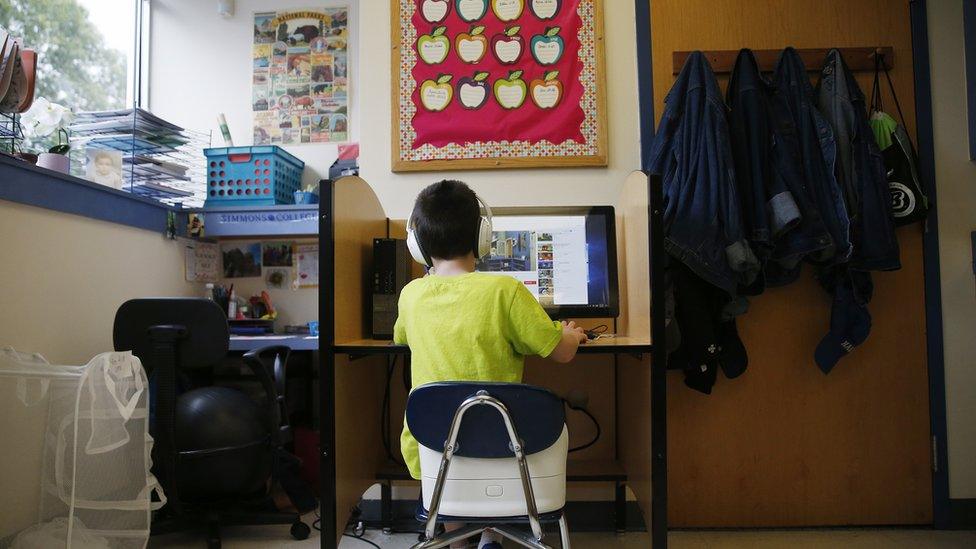Plans for new register for home-educated children
- Published
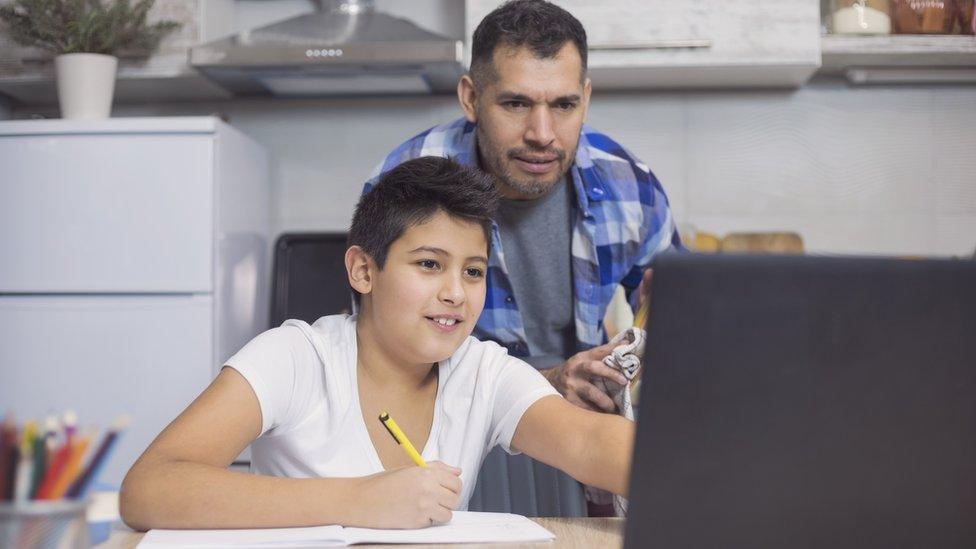
The government is consulting on plans to launch a new register of children in England who are being educated at home.
Under the plan, it would be parents' responsibility to register their child if they were not attending a state school or registered private school.
Ministers say a register would help councils intervene when standards were poor or if children were at risk.
The education department estimates the number of children being home educated in England has risen to 60,000.
The government is also consulting on proposals that would require local authorities to provide support for home-educating families, such as teaching resources or financial contributions towards exam fees.
At present, there is no mandatory registration system for families who choose to educate their children at home, although some local authorities run voluntary registration schemes.
This means that the number of home-schooled children remains uncertain.
This latest call for a register is likely to anger some home-educating parents - but Education Secretary Damian Hinds said the government had a duty to make sure children were safe and receiving a good education.
He said it would also help the authorities spot young people who may be:
receiving a solely religious education
attending an unregistered school
not receiving an education at all
Mr Hinds said the term "home education" had acquired a much broader meaning than it used to have and was now a catch-all phrase to refer to all children not in a registered school.
"So whilst this does include those actually getting a really good education at home, it also includes children who are not getting an education at all or being educated in illegal schools where they are vulnerable to dangerous influences," he said. "The truth is, we just don't know.
"As a government, we have a duty to protect our young people and do our utmost to make sure they are prepared for life in modern Britain.
"That's why this register of children not in school is so important - not to crack down on those dedicated parents doing an admirable job of educating their children in their own homes but to prevent vulnerable young people from vanishing under the radar."
'Why should I have to sign a register?'
Rhian Joy, from Suffolk, who home educates two of her three children as they have special educational needs, told BBC News she was angered by the idea of having to sign a register.
She said her eldest child had had bad experiences in school and being home educated was helping him "blossom".
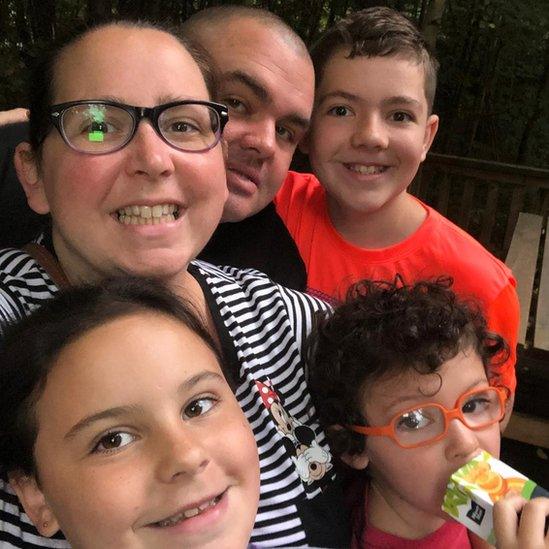
Rhian Joy and her family
"Why should I have to sign a register and have someone come into my home and question the education that I am providing for my child when it's the first type of education that's actually succeeded for him, that has not caused severe detrimental effects to his mental health?" she asked.
"The people that will come, will they have any knowledge on special needs?
"Will they have any knowledge of his background, of what he's gone through, the fact that he has no trust for people at all any more?
"If someone is coming to my home and questioning me about the education I'm providing, who's to say that if I don't agree with what they're suggesting or saying... who then governs that?
"There is no-one to govern that.
"This isn't how it should be - we should be allowed to educate our children, because actually home education is not the easy option, home education is actually a hard option and we have done this, and lots of other parents have done this, and are succeeding and are seeing their children blossom into fantastic human beings and succeeding in life."
'Ensuring children are safe'
But the head of the schools watchdog, Ofsted, Amanda Spielman, said: "These proposals offer an important opportunity to make sure that all children not attending school are safe and receiving an education that prepares them for adult life.
"Ofsted has long had concerns about the increasing numbers of school-age children not attending a registered school, many of whom may not be receiving a high quality education or being kept safe.
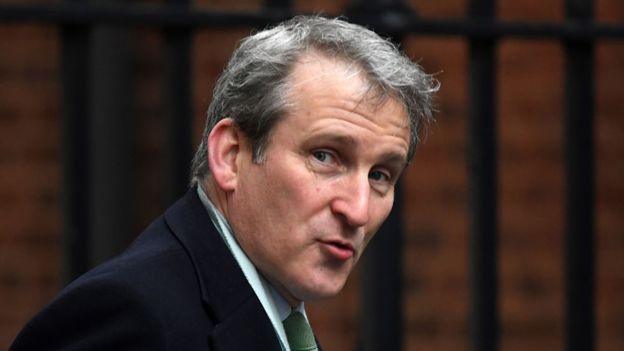
Mr Hinds says the government has a duty to protect children
"We are especially concerned about children 'off-rolled' from schools and those in illegal schools.
"The new register will make it easier to detect and tackle these serious problems."
Children's Commissioner Anne Longfield said: "The number of children who are not being educated in school has rocketed over recent years.
"For some families, educating at home will be a positive choice but many more children are falling out of school and their parents are struggling on their own."
'Further intrusion'
But Cheryl Moy, founder of home educators' support group Educational Freedom, external, said the vast majority of home educating families were highly responsible.
"The majority of families we've spoken to in the past do not welcome any further intrusion into their lives, they are legally responsible for their children and they take that responsibility seriously," she said.
Ms Moy said that, far from being hidden away, home educated children were very visible.
"They are highly visible as everyone seems to think they have the right to quiz the parent and the child about their education, from the supermarket checkout person, to the dentist, to the neighbour, to the friend's schooled children," she said.
And in cases where a child had been harmed, she said home education was not the root cause.
"In cases involving home-educated children, it has transpired that the child was known to doctors and social workers as being at risk and wasn't in fact home educated - they were children missing education."
The consultation - which follows a call for evidence last year to gather views from across the sector - will be open for 12 weeks until Monday 24 June.

- Published10 April 2018
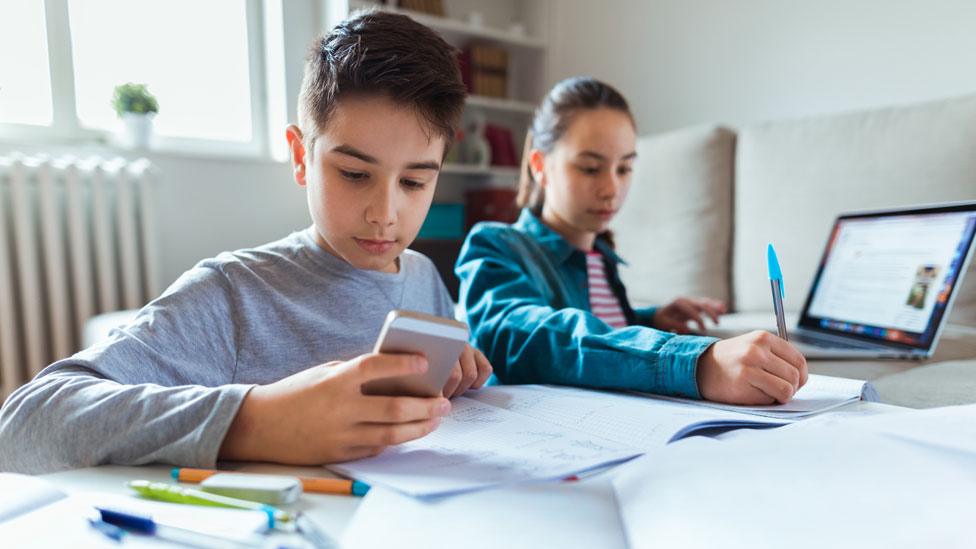
- Published26 April 2018
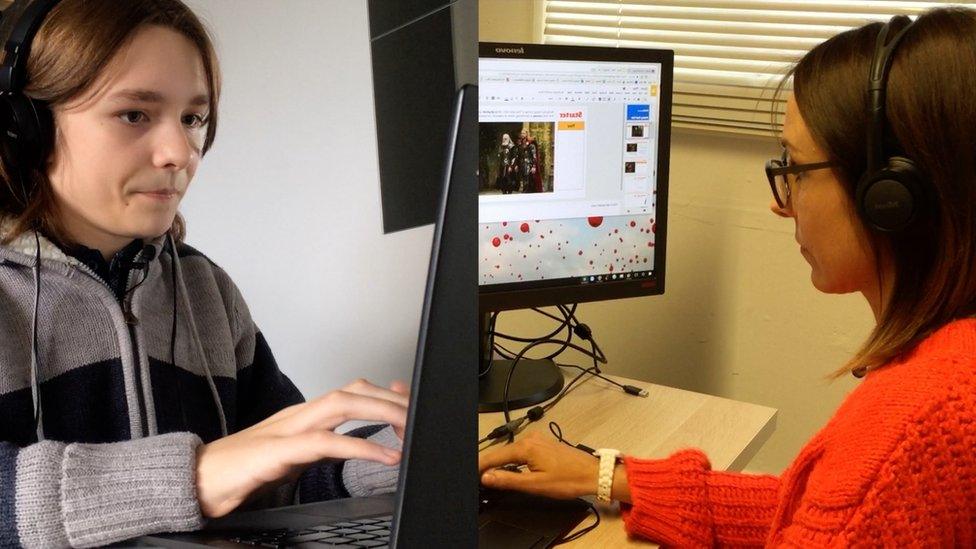
- Published4 February 2019
